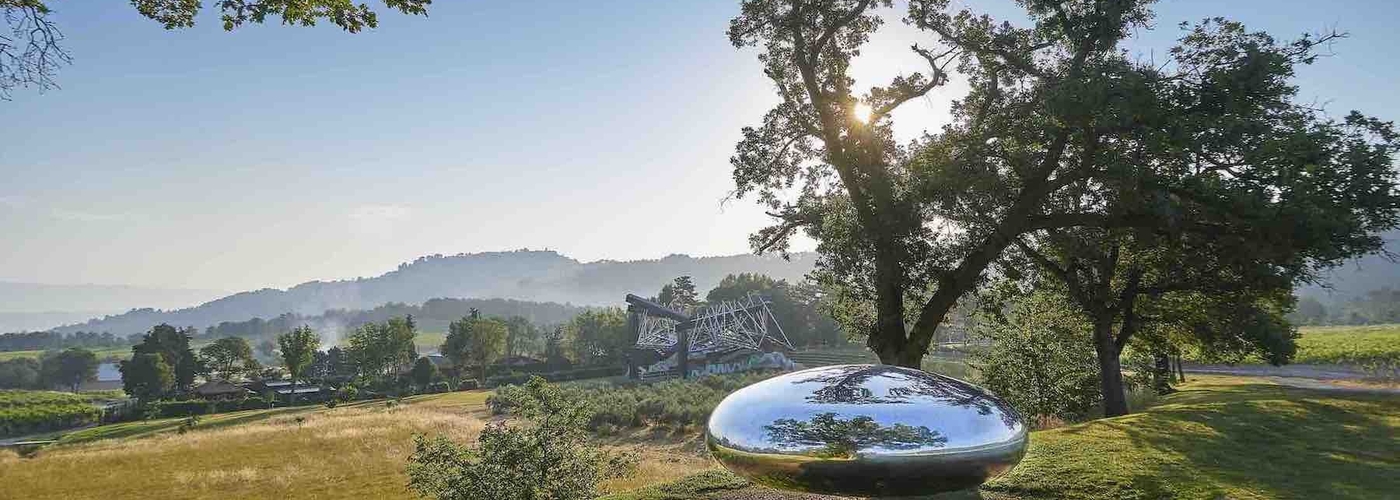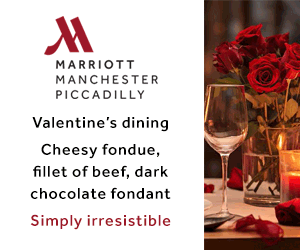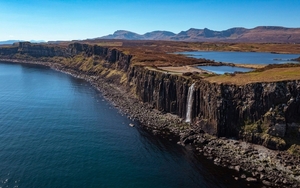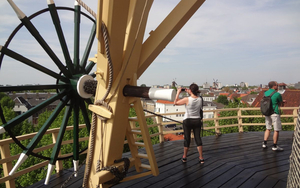Neil Sowerby enjoys Cézanne, Dylan and vin in Southeastern France
Rule of thumb for thirsty travellers abroad: be more adventurous than to dive into the nearest Irish-themed bar. So there we are on Aix-en-Provence’s stately main thoroughfare, the Cours Mirabeau, ordering Guinness at The Four Courts.
We’d only been in town an hour, still getting our bearings, and at least it wasn’t called The Molly Malone or Paddy McGinty’s Goat. Our main excuse, bar the need for rehydration in the face of the unrelenting Provencal sun, was the neighbouring Les Deux Garcons looked like it wouldn’t be re-opening any time soon, if ever.
Whether you’re raiding their aromatic products shop, booking one of their courses or merely chilling over a game of pétanque. Perfect Provence.
All my research into Aix hadn’t shown up that this legendary brasserie had been ravaged by fire in late 2019, its magnificent Belle Epoque interior destroyed along with mementoes of its famous clientele from Picasso to Clooney. Now it’s all trussed up in scaffolding and sheets.
Named after the two waiters who bought the establishment in 1840, it was a haunt of Aix’s most famous son, Paul Cézanne, much given to leisurely aperitifs there with his novelist copain, Émile Zola.
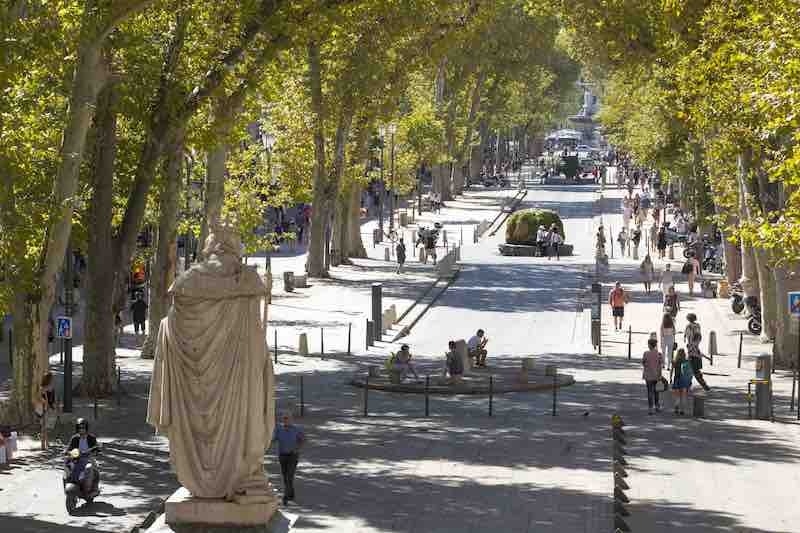
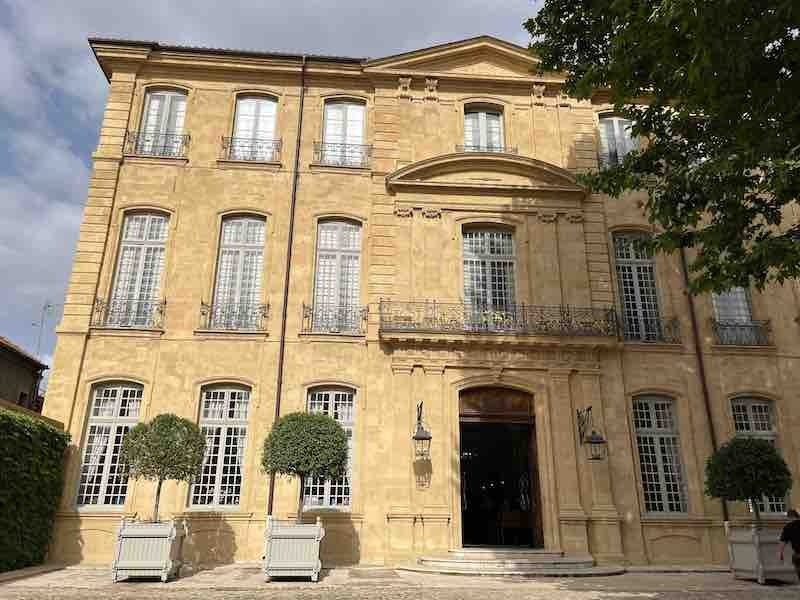
We console ourselves with a grandstand people-watching spot as we make plans to reacquaint ourselves with all things French. It has been a long time. That man Cézanne’s remarkably preserved studio is to be the centrepiece of our stay, but our appetite for art is first perked by a disciple of his, Raoul Dufy.
The pair never met but the influences are traced across 90 canvases in a glorious retrospective, Raoul Dufy – a Passion for Colour, at the Hôtel de Caumont until 18 September.
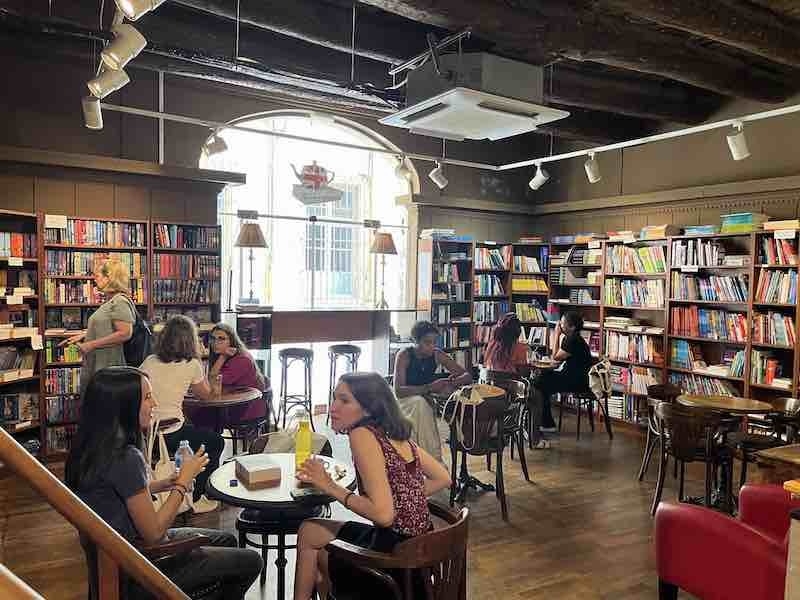
Mazarin – aristocratic throwback
The venue, also home to a permanent film exposition of Cézanne’s life, is just off the Cours in the 17th-century Mazarin residential quarter. Among the grid of honey-coloured stone mansions centred on the Fountain of the Four Dolphins (first and best loved in the "City of a Thousand Fountains") the de Caumont stands out.
It’s what the French call a hôtel particulier (aristocratic townhouse); beyond its gated courtyard the interior has been transformed into a cultural space with the dandiest gallery gift shop I’ve ever seen.
Handily opposite on the corner of the Rue Joseph Cabassol is Book in Bar, an English-speaking bookshop with a feminist bent and excellent coffee and croissants.
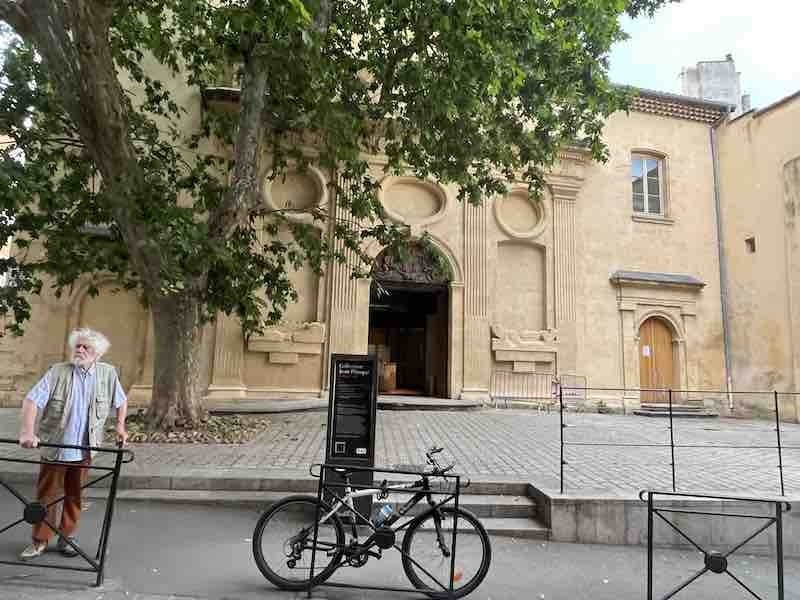
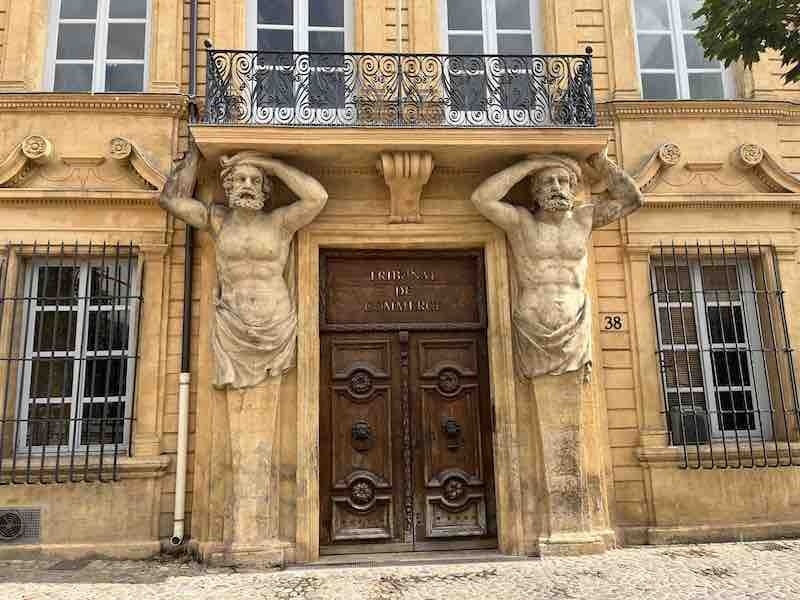
The Mazarin is home to two other serious art galleries – the Musée Granet, specialising in painting and sculpture from the 16th century onwards, and Granet XXe, its recent extension into the glorious 17th century Chapel of the White Penitents, which now houses some 300 works by Impressionists and Post-Impressionists.
If you plan on visiting both galleries, you should visit Musée Granet first for the dual ticket. With the Aix-en-Provence city pass entrance is free to both museums.
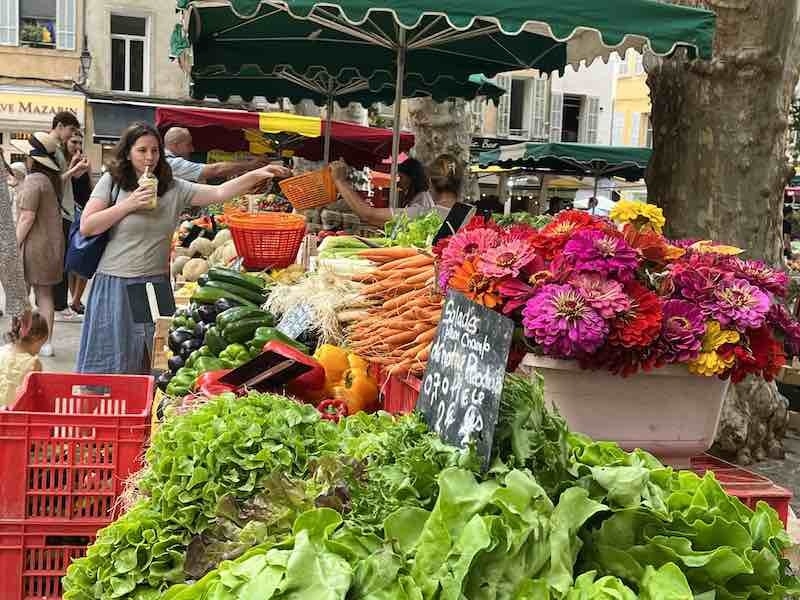
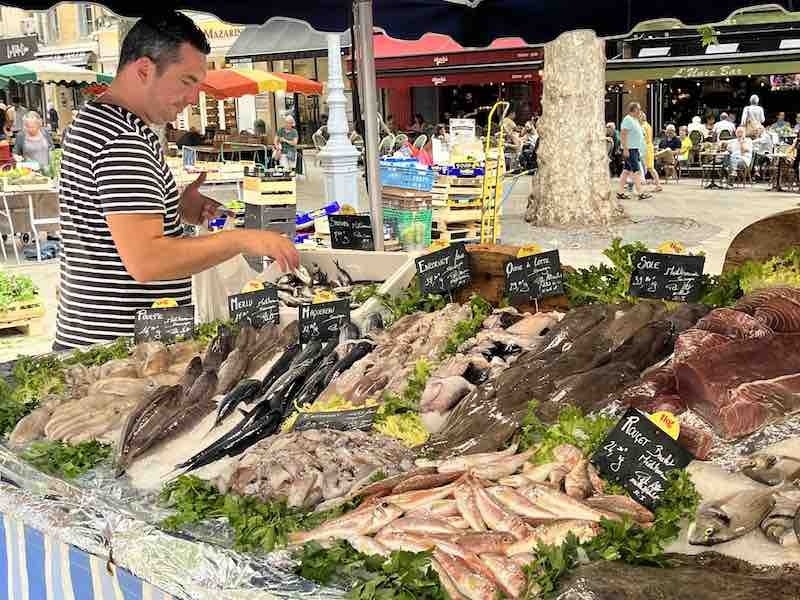
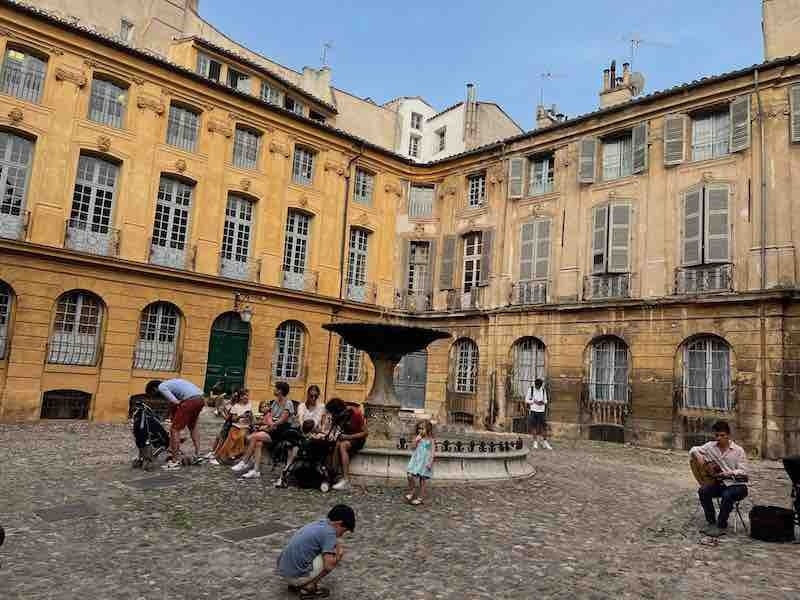
Head north from the Cours Mirabeau and you are in the Old Town with its less formal layout and lion’s share of bars and restaurants. The food markets, de rigueur in Provence, are to be found here, a daily one in the Place Richelme near the Town Hall and, on Tuesday, Thursday and Saturday a more sprawlingly impressive example on the Place des Prêcheurs.
The Vieille Ville’s gushing answer to the Four Dolphins is the Fontaine d’Albertas. The family of that name, originally from Alba in Piemonte, built a spectacular Baroque square on the site of a house they had inherited. A fountain in matching style was added in 1912. An official national monument, the Place d’Albertas is a magnet for street musicians.
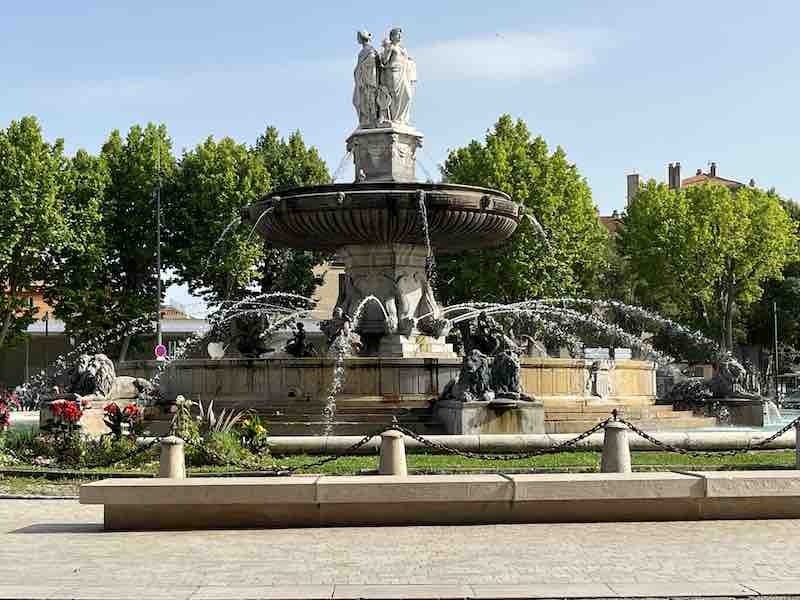
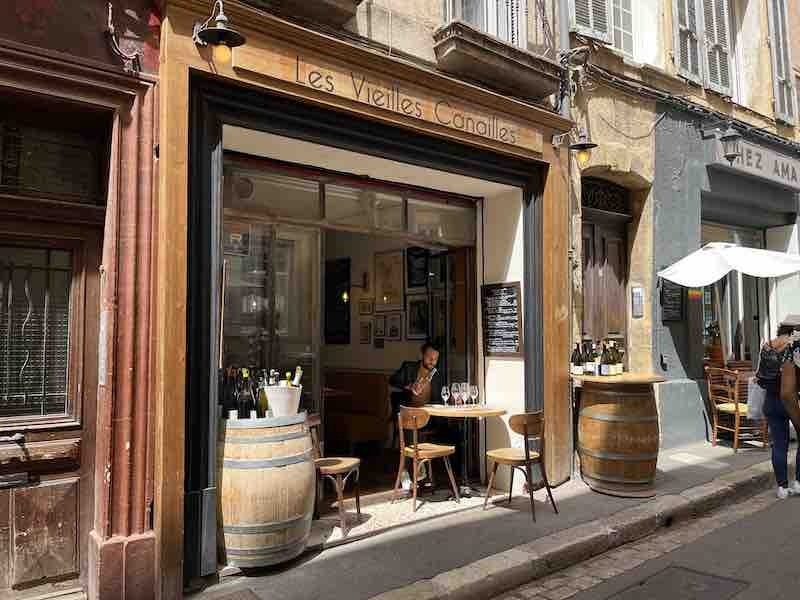
Food and wine in the heart of the city
It is reached via Aix’s liveliest street, the narrow Rue Espariat, climbing up from yet another fountain, the monumental, traffic-circling Rotonde, which also signals the start of the wide, pedestrianised Cours Mirabeau.
Best value eating tip on the bustling Espariat strip, is Chez Jo, with its wood-fired grill, opposite the Fontaine des Augustins. Turn left further up past the bulky Saint-Esprit church into the Rue Isolette and you’ll find an altogether hipper hang-out.
The entrance to narrow, little Les Vieilles Canailles is flanked by barrels, testimony to the extensive library of Provencal wines on offer, alongside "plats typiques" (bone marrow, foie gras, ballotine de poulet de Bresse) lauded by the Gault Millau Guide. It’s the creation of Pierre (Pierrot) Hochart, once of Ducasse in Monaco.
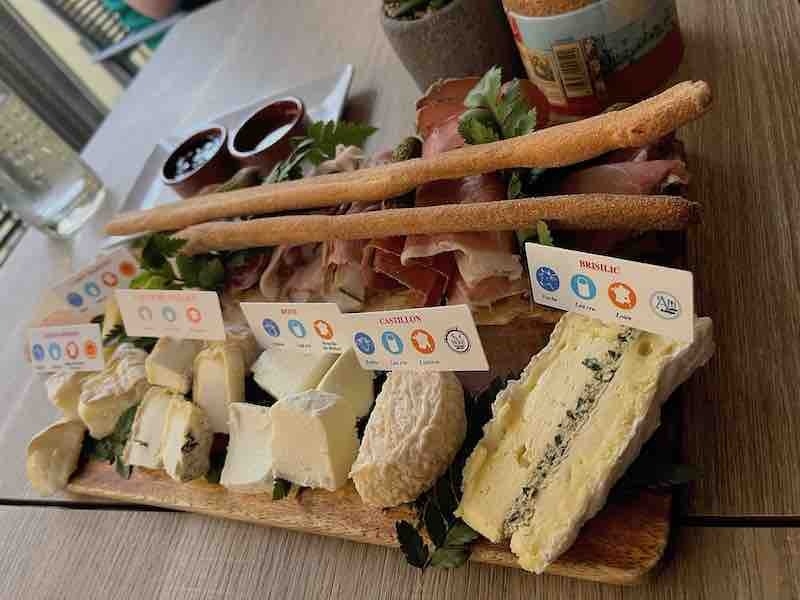
There’s an excellent, if more compact, wine list at La Fromagerie in the narrow Passage Agard off the Mirabeau. It’s a homage to high-quality cheese, as the name suggests, including our own Colston Bassett Stilton.
Order a mixed platter of fromage and charcuterie and make sure you get a table on the top floor terrace. Alternatively, if you’re on a bar crawl, grab a swift "gorgée de vin" at the stand-up counter in the Passage. Modern Aix itself is a livelier town than its patrician past suggests. We were there for the summer solstice, date of the national Fête de la Musique, and the street bands rocked.
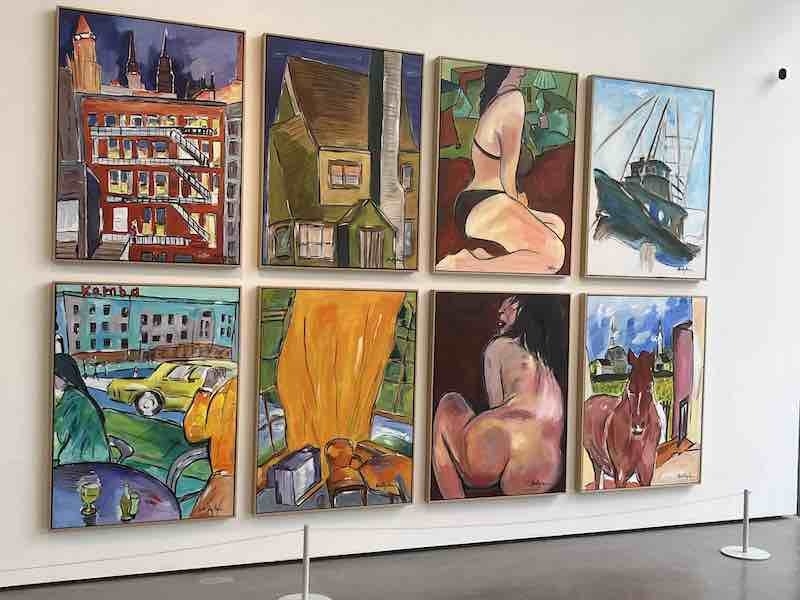
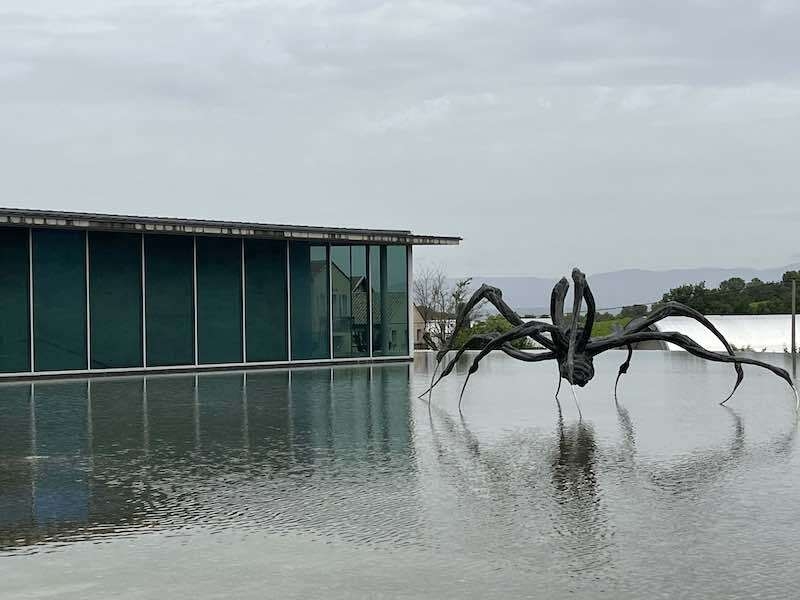
On the Aix Art Trail
Troubadour legend Bob Dylan has rocked in his day. Whether his Impressionist-influenced paintings do is open to question. Certainly, it seems an act of critical chutzpah to display them alongside "influences" such as Picasso, Matisse and Chagall, but then Château La Coste does not follow the normal gallery rules. Primarily because its eclectic art collection is dotted across 200 hectares of vineyard 20 minutes north of Aix.
The Bob Dylan: Drawn Blank in Provence exhibition, based on drawings he made during his tours of Europe and America between 1989 and 1991, occupies the Renzo Piano Pavilion until 30 September. The architect’s light-filled pavilion is sustainably sunk into the earth, surrounded by Sauvignon Blanc and Vermentino vines.
The rest of the site is a showcase for world-famous sculptors and painters – a private treasure trove amassed by the Château’s Irish owner, Paddy McKillen, whose London hotel empire includes stakes in Claridge’s, The Berkeley and The Connaught.
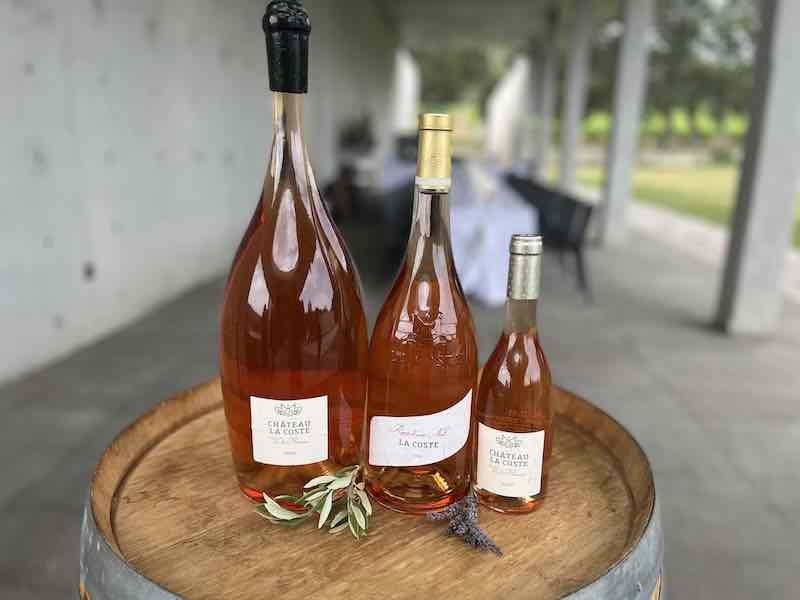
He bought the land here over a decade ago for a serious commercial wine project. But the emblematic Louise Bourgeois sculpture Crouching Spider, set in the pool fronting the main Tadao Ando-designed building signals, that Art with a capital A shares equal billing.
It all makes for a great day out from Aix. In the on-site restaurant, we sipped La Coste rosé with a lamb dish, shot through with the local "garrigue" herbs. Their scent is everywhere in these Luberon foothills.
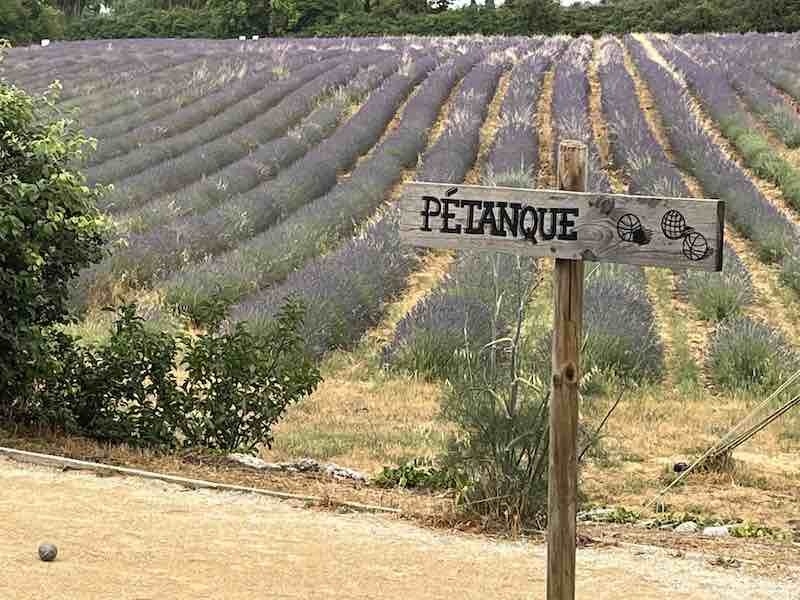
Appropriately en route back to Aix we stopped off at a family-run, open-to-the-public, organic lavender farm, Terre Ugo. For 30 years the land was a market garden, then grandfather Ugo diversified into flowers.
These days his grandchildren are concentrating on lavender from their seven hectares. Plus, symbiotically, bees. It’s a lovely spot, whether you’re raiding their aromatic products shop, booking one of their courses or merely chilling over a game of pétanque. Perfect Provence.
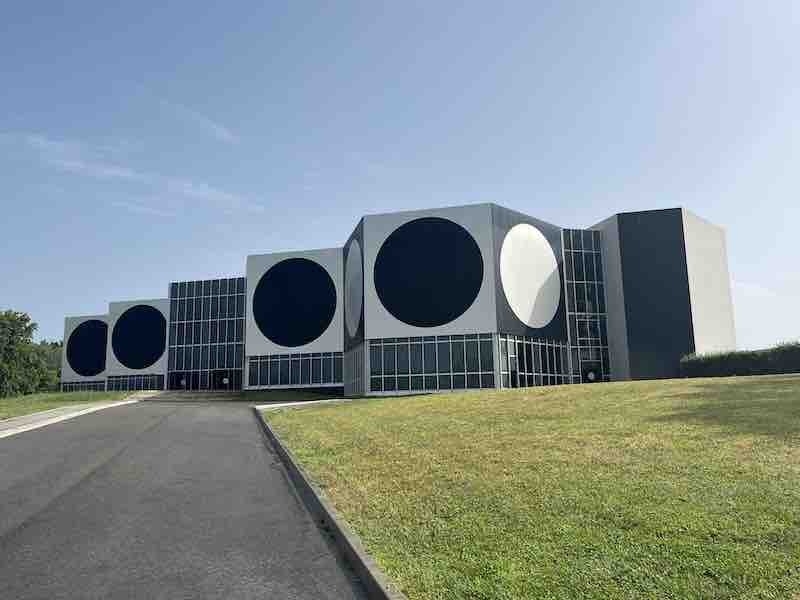
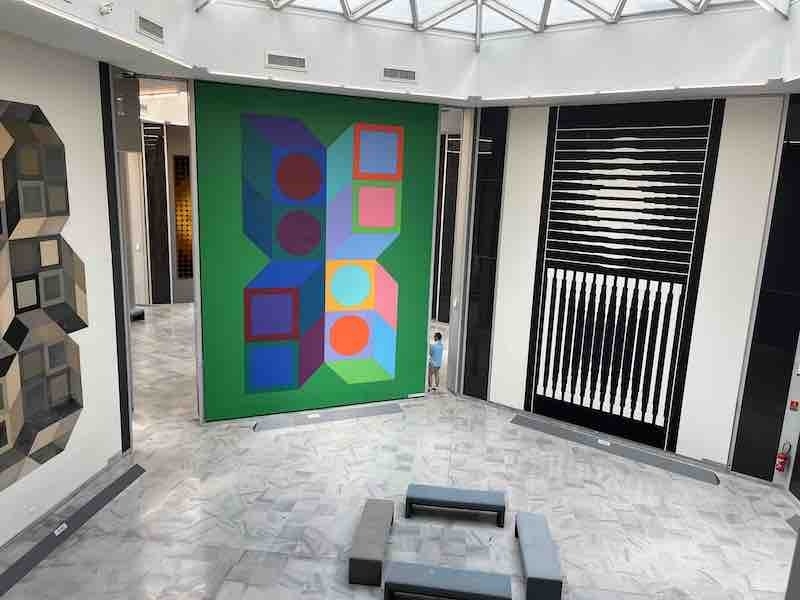
Alongside all this post-impressionist idyll, the Fondation Vasarely feels like an alien interloper. Inside this avant-garde building, its exterior a sequence of black and white squares and circles, are 42 monumental (20 ft × 26 ft) abstract works inside seven hexagonal ‘cells’.
All to celebrate its creator, the 20th-century Hungarian-born artist and visionary Victor Vasarely, founding father of Op Art. Prepare to have your visual perceptions challenged, but fear not – it's all rather jolly.
The Fondation is situated on a hillock on the edge of town near an auto-route junction. The spot was chosen by Vasarely because of its view across to Cézanne’s beloved Montagne Ste-Victoire – a key component in his shift from Impressionism to a more geometrical style of painting, paving the way for his abstract successors.
In the 1880s and 90s the Aix-born iconoclast produced more than 60 oils and watercolours of that unmissable, craggy massif.
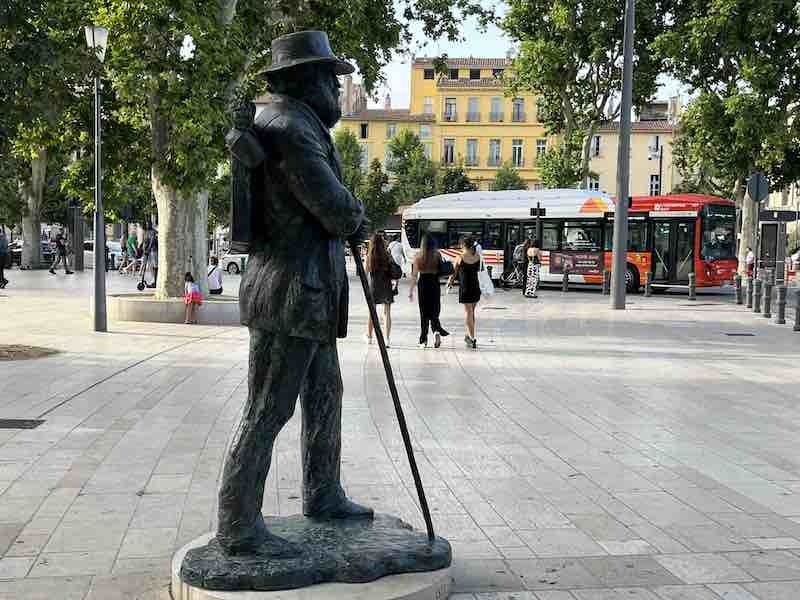
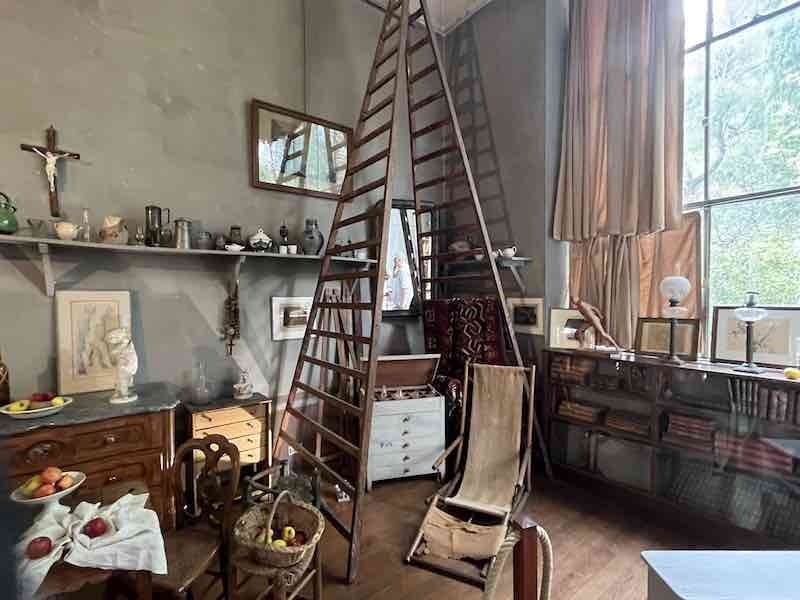
Over a century after his death, the spirit of Cézanne pervades Aix. Outside the tourist office, there’s a jaunty statue of the bearded artist, his easel strapped to his back – perfect for that post-impressionist selfie.
Somehow, though, this is one artist of his period who resists chocolate box caricature. That stern devotion to his craft suffuses the very air of the Atelier Cézanne.
Every day In the last four years of his life he trekked up the hill from town to "clock on" at the house he custom-built. Rescued by admirers, and later transferred into the custody of Aix University, the first-floor studio is remarkably well-preserved.
Book a tour, guided or self-guided, potter around among the still life clutter of his many artistic props, absorb the domestic vibe of his coat and hat hanging up, and inhale the presence of genius. A presence so vivid, it’s almost as if Cézanne has just popped out for an aperitif with Émile.
Follow Neil Sowerby on Twitter @antonegomanc
Factfile
Neil flew from Manchester to Marseille with Ryanair.
Aix is a half-hour shuttle bus ride away. He stayed at the Hotel Rotonde, 15 Avenue des Belges, 13100 Aix-en-Provence.
For full information on the city visit the Aix Tourist Office website.
An Aix-en-Provence city pass costs from 25 euros for 24 hours to 43 euros for 72 hours, with discounts for children (3-13)
The EY Exhibition: Cézanne at the Tate Modern (October 5 2022 - March 12 2023)
If the piece whetted your appetite for Paul Cézanne’s works, coming up soon is a once-in-a-generation show of paintings, watercolours and drawings – 80 in total, 20 never seen before in the UK – carefully curated to explain his artistic development. Open daily 10pm-6pm, tickets for some slots still available.
Read next: An insider’s guide to eating and drinking in Sale
Read again: 'Avoid the queues' - Liverpool Airport tempts travellers with global Lufthansa link
Get the latest news to your inbox
Get the latest food & drink news and exclusive offers by email by signing up to our mailing list. This is one of the ways that Confidentials remains free to our readers and by signing up you help support our high quality, impartial and knowledgable writers. Thank you!






